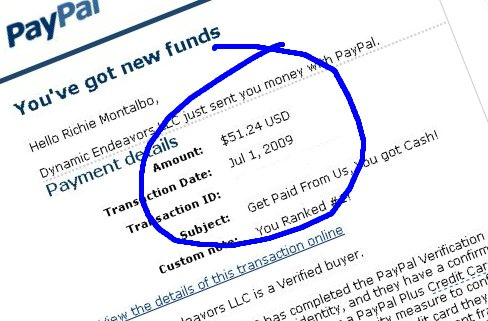Life Coach Salary: 15 Reasons Your Coaching Fees Are Too Low

Last night, I taught a Q&A tele-webinar on How To Set Your Coaching Fees for my clients, students and guests. They asked great questions and I know the class was a real eye-opener for them.
The class was inspired by questions from one of my coaching clients who is also a coach.
Bottom line? Life coaching is an expensive, highly personalized, high-end service. All logic to the contrary, sometimes a service sells more easily when it's expensive. (Just ask a behavioral economist how logical people are about spending money!) And of course, all of this applies to business coaching and executive coaching, as well.
Long story short: if you missed the live webinar, or even if you were there, here's a list of 15 reasons your coaching fees are probably too low. I've divided the list between A. Your probable reasons for undercharging, B. Why that doesn't work for your clients, and C. The reality check. I hope it's helpful!
A. Why You Charge Too Little For Your Coaching:
- You don't see the value in coaching. This is way more common than you might think. In fact I didn't see it until I'd been coaching a while. What changed? I worked with incredible coaches who helped transform my life. Then I watched myself transform my clients' lives. Then my clients started saying things like, 'If I weren't paying you $350, I'd find a way to pay you $10,000!'
- You have a disempowering story about why people won't pay you more. Yes, a lot of people have been out of work for a long time. But 90% are still working and many of those are making more money than ever. And coaching continues to be the 2nd fastest growing profession in the world. But those are generalizations. The truth is, people who see for themselves the value in coaching will find the money to pay for it. For example, if you're a career coach who has a great track record helping people get hired, an unemployed person will pull together the money to hire you.
- You're trying to sell coaching to people who don't value it. For one person, $25 per month will be too much to pay for coaching. But for someone else, anything less than $1000 may be too little, because they want the best coach they can afford. Like it or not, people frequently measure how valuable something is by how much it costs. And in the case of coaching, clients actually put more effort into their own results when they pay more, because they want their money's worth. So don't waste time on the 'client' who's interested in coaching with you, but not interested in paying, unless you sense they are that rare person who will knock themselves out even if you coach them for free - and you really want to coach them.
- You don't think you're worth it. Okay, let's say you're a new coach and you've seen the credentials and track records of your competition. Pretty intimidating? It may be tempting to compete on price, but will that really satisfy you? A better strategy is to do everything in your power to get results and credentials as quickly as you can, so you can compete, period. Coach a lot of people for free for a set period of time, but be sure each client knows you want a testimonial from them in exchange. Become a certified coach quickly. Join the IAPPC.
- You're trying to coach too many people. When I first became a life coach, I thought 30-40 clients was a full coaching practice. And to make a good living, I really did need a lot of clients, because I was only charging $100-200 per month for each. That left me in a chronic state of always needing more clients. I wish someone had told me that most successful coaches have less than ten clients.
- You don't know how much money you need to make. As I showed my class last night, your coaching fees aren't your life coaching salary. When you subtract the money it takes to make money, including your business expenses, taxes, and benefits you'd normally get from a salaried position, it takes a lot more money than you might think, especially if you only have 6 clients. Be sure you do the math.
- You want to coach low-income people who could benefit from coaching. Nothing wrong with that, unless you put yourself out of business. Better to charge a fee to most of your clients that's high enough to allow you to offer some scholarships. You can also volunteer your coaching services to an organization that provides coaching to low-income people.
B. Why Charging Low Fees Doesn't Work For Your Coaching Clients:
- People perceive life and business coaching as a highly-personalized, high-end, expensive service. That's what they're looking for and it's usually what they want to buy. When you charge less, you look like a bargain-basement coach (who may deliver bargain-basement results). One-to-one coaching delivers dramatic results and if the price tag is inconsistent with that, you run the risk of confusing people (and confused people don't buy.)
- When people buy a high-end service, they're saying to themselves, 'I'm worth it!' That feeling is what they want. And when someone decides it's time to get a life coach to help them upgrade their life, that feeling is a big part of their resolve. They may actually be disappointed if you don't charge enough to make a statement that from now on, things will be different for them.
- People want their money's worth, so the more they pay, the more value they'll get. Your high-paying clients will work harder and achieve more. And you'll be less likely to slack off, too. As one of my colleagues told me, every time she signs on a client with her new higher fee, she thinks, 'Holy crap! Now I have to deliver that much value!' and that's a good thing.
- Your clients deserve better service from you. I tell my clients that it's my goal to give them exactly what they need. They're all high-achievers, so I'm confident they won't become needy just because I'm extremely supportive. But a coach who's trying to make a living with 30 low-paying clients is spread too thin between serving clients and constantly needing to market and sell in order to keep the numbers up. That means less attention for each client. And it may mean that you're needy, because you always need more clients. A needy coach is never at their best.
C. The Reality Check:
- Coaches worldwide average around $200 per coaching hour. Even if you choose to discount your fee, you don't need to charge a lot less than that.
- According to coaching surveys, most professional coaches average just six clients per week. That means each client needs to pay a hefty fee in order for the coach to earn a substantial salary.
- Even if you have only 5-10 coaching clients, you will need to spend some time and expense on marketing and sales and you need to be paid for your entire week, not just the time you spend coaching.
- When you add up what it costs to be in business, including business expenses, income tax, retirement investments and, if you live in the US, health insurance premiums and 100% of you Social Security and Medicare payments, you may find that earning a $100,000 take-home salary from coaching may easily require $150,000 in annual income.
Well there you have 15 reasons why your life coaching fees are probably too low. What are you going to do about it?
Set your coaching fees with confidence. Get the new FREE eBook:

Image by richiemontalbo
Tweet

 by
by 
